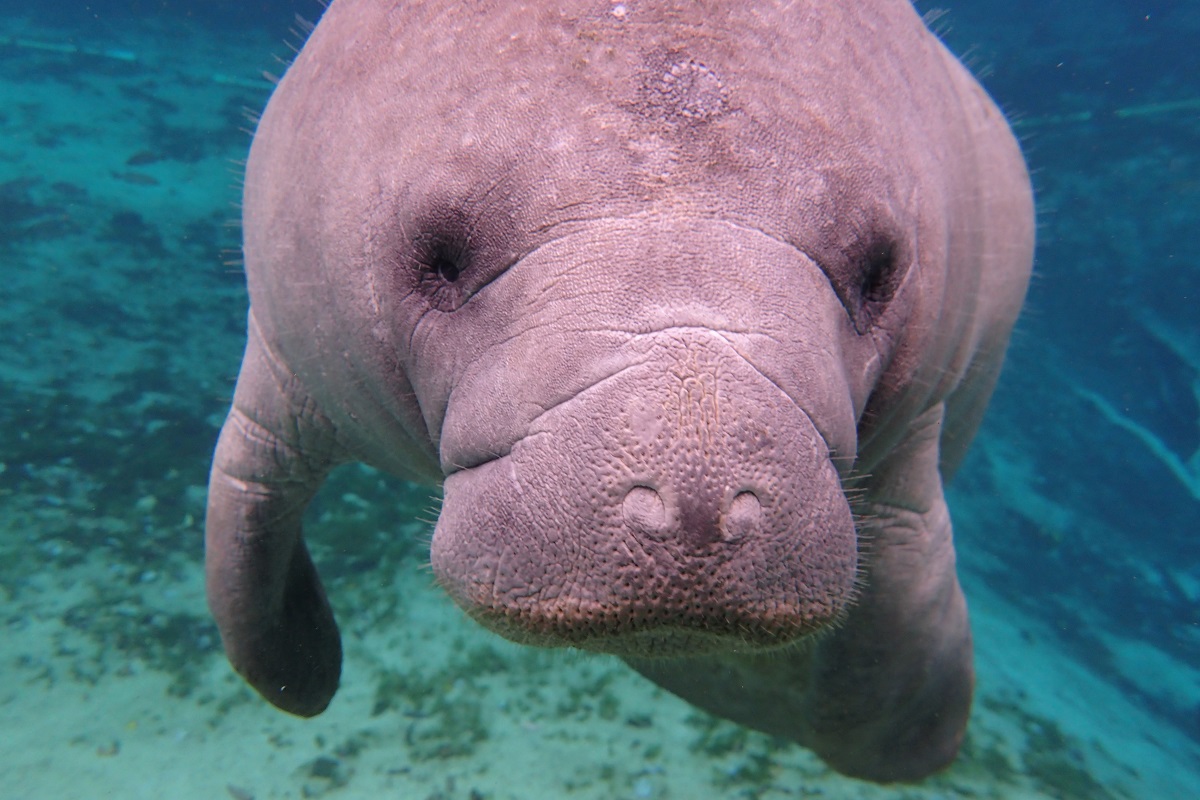
Winter is a wonderful time to view manatees in Florida, especially through a “Swimming with the Manatees” experience. If you go, remember these basic Manatee Manners that will help to safeguard this protected species while allowing you to enjoy them in their natural habitat.
Manatee Manner #1: Practice passive observation – Look, but don’t touch.
The practice of “passive observation” or quietly observing manatees is a great way to see their natural behavior and avoid disturbing them. This is especially crucial in designated manatee sanctuaries where disturbance could cause them to leave a warm water area or enter nearby vessel traffic. Additionally, passive observation means never touching, approaching, or chasing manatees. Any of these actions are considered harassment, which is against the law and can easily get you a citation.
Manatee Manner #2: Don’t give food or water to manatees.
Wild animals should never be fed by people, and manatees are no different. While manatees are not aggressive, feeding them or giving them fresh water could cause them to change their natural feeding behavior. It’s not healthy for them to eat items that are not part of their natural diet and wild manatees can find plenty of food and fresh water sources on their own.
Manatee Manner #3: Be aware while boating and kayaking.
Keep your eyes peeled for manatees while boating or kayaking by wearing polarized sunglasses and scanning for manatee snouts, tails, and backs. Look for manatee “footprints,” which look like circular wave patterns on the water’s surface created by the manatee’s tail. In your motorboat, slow down in manatee habitat, and if you spot a manatee close by, cut your motor. While paddling, observe manatees from a distance of at least two kayak lengths, and don’t paddle over manatees. And don’t forget to stash your trash, especially fishing line or hooks, that could injure or entangle manatees.
Manatee Manner #4: Avoid manatee babies.
It is especially important to avoid getting between a mother and calf if you are in the water with manatees. Curious calves may seem like pets, but they are wild animals that are dependent on their mothers to learn essential survival skills. They could ultimately die if they are separated from their mothers.
Manatee Manner #5: Ask your guide questions when choosing a manatee-viewing tour.
Going on a tour is a fun way to learn about manatees from an experienced guide. When choosing a tour, ask your guide if they practice passive observation or maintain minimum distances around the manatees. If they are unsure, they may not be following manatee-viewing best practices. With so many tour options available, you may also consider asking your tour operator if they vary tour times or limit participants to avoid crowding and disturbing manatees while still providing a safe, quality experience. The experience and education your tour operator delivers is an important component to manatee conservation.
For more information about manatees, visit savethemanatee.org. If you see a sick, stranded, injured, orphaned, or dead manatee, or a manatee that is being harassed, you should immediately call the Wildlife Alert number 1-888-404-FWCC (3922), send an email or text to [email protected], or use VHF Channel 16.


